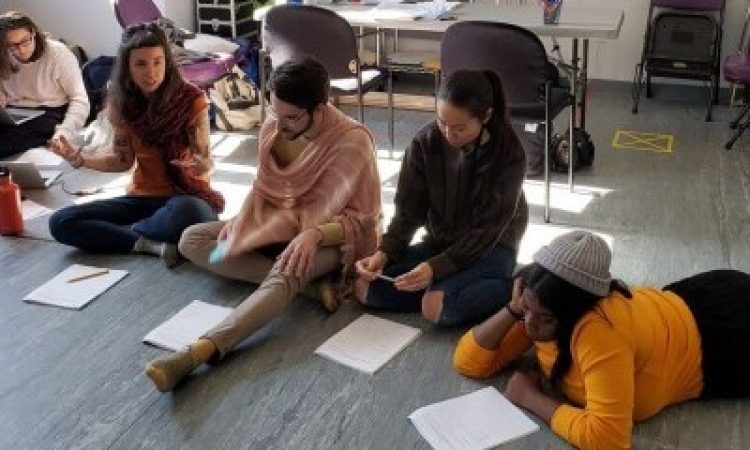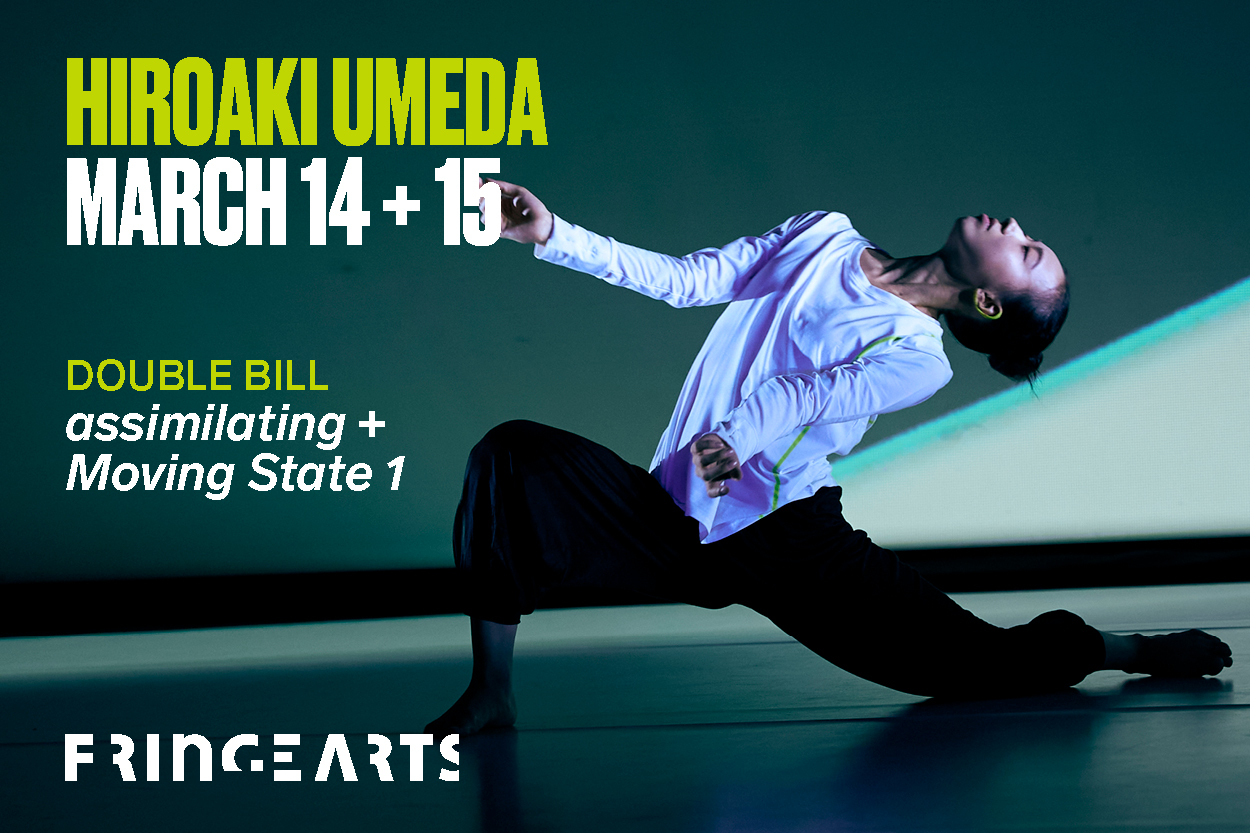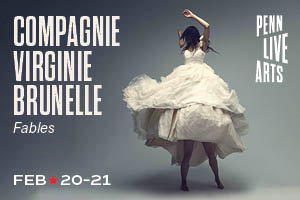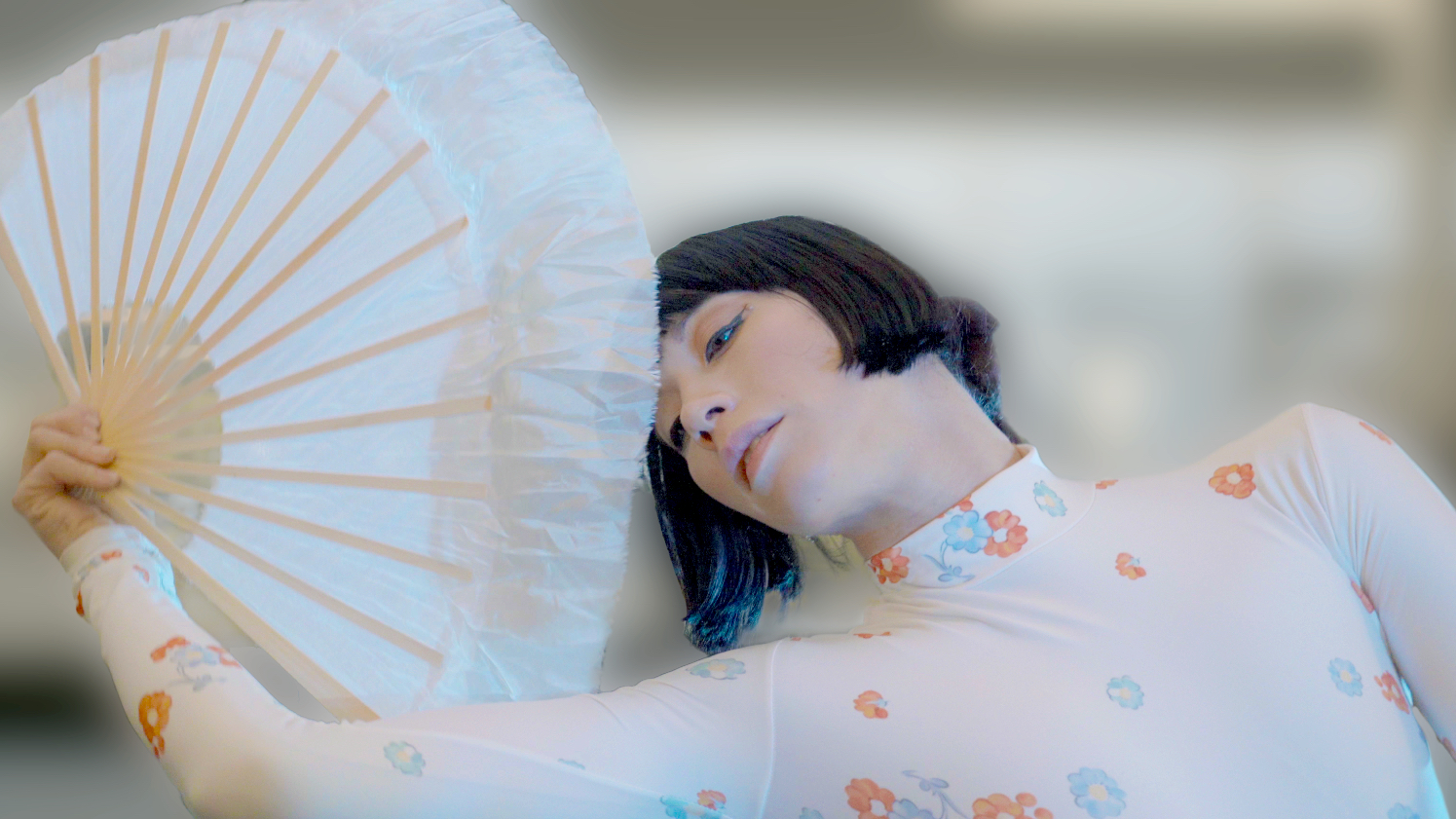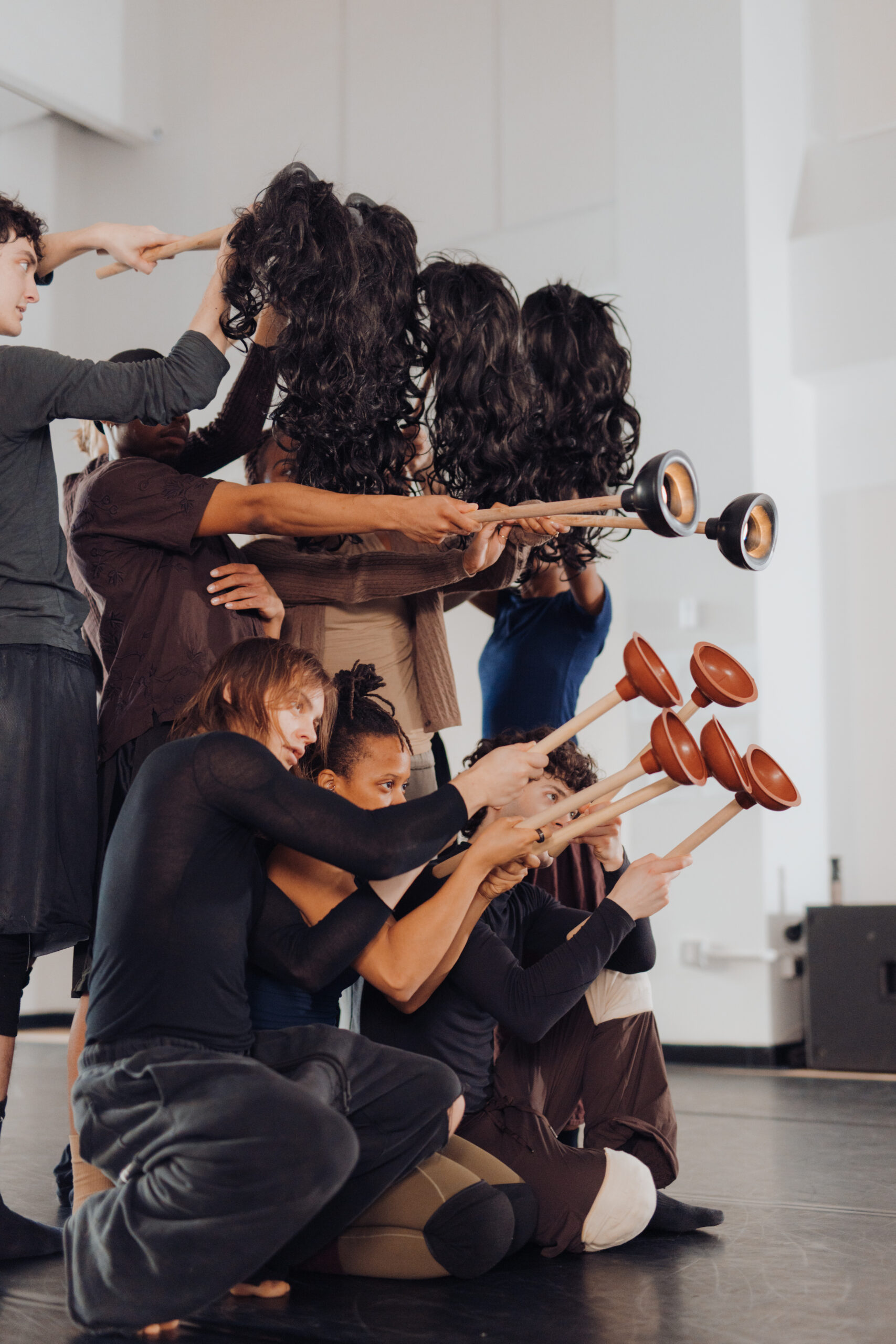Transformative art-making is happening in school cafeterias and church basements across the city. Many don’t see it. Some never hear about it. But there’s a force rising, and it’s intergenerational, multicultural, and hungry for change. Enter stage left the leader, Anissa Weinraub: theater-maker, educator with over 10 years teaching experience, and organizer, who has dedicated her work to challenging the educational model in Philly schools, one play at a time. She co-founded Teacher Action Group (TAG) and the Caucus of Working Educators. Both groups work to create policies that build better schools. Her current project is Philly Education Stories: a process of building a play while exploring ways to heal and strengthen our local school communities. Last February I attended the Inquiry to Action Groups launch held by TAG, where I met Anissa and learned about her work. Intrigued by her methods, I decided to participate and interview her. I floated back and forth as active participant and fly-on-the-wall, hoping to capture this collaborative artistic process.
I’m sitting with Anissa in her living room. We’re nearing the end of the project and discussing her journey. Two years ago, Weinraub found herself trapped in the cycle of teacher-organizer burnout, the depletion that comes from school closures, constant reassignment, overcrowded classrooms, and under-resourced communities. She needed to find a way to reinvigorate her suffocating soul. She turned to her passion for community-building and devised theater, which sparked the idea for Philly Education Stories. Over a year ago, Weinraub shared her vision with TAG members to facilitate “collective co-created ensemble-based work” with Philadelphia educators and students. Teachers were nervous, but excited. Most had never acted in a play, let alone helped create one. On the flipside, Weinraub’s students were veteran theater-makers, writing scripts, and running lines in their free time. This powerful group of young leaders includes Charles Blain, JC Chew, Aaliyah Foye, Ashely Jubilee, Anaya Lawson, and Jennifer Tshikusay.

The project starts with Weinraub and TAG core members Alma Sheppard-Matsuo, Aileen Haggerty, and Maria Carambo gathering people in story circles, each having a particular theme and set of questions. They open by asking participants what drew them to share their stories. Teachers reflect on the question of why they became educators. They ponder their purpose, the things “that get in their way,” the mistakes they make. The student circles share stories of harm and care they have experienced. They also question how school is “missing the mark.” They problem-solve how school could be better. During Philly Education Stories, TAG convened over 100 students and educators over several months, all processing the complex emotions of their truths through theater-making exercises. For example, participants are asked to use movements and gestures that show what school feels like or to embody a topic discussed during the circle. There are moments of shared joy and pain centered on the commonality of these stories. There are many tears. Connections begin to emerge. A sense of shared community and safety begins to grow.
After the storytelling comes synthesis. Participants convene in row homes and meeting spaces around South Philly, listening to recordings from the story circles. Weinraub asks us to immerse our senses in these stories. The tension between the problems of the world and the everyday challenges in the classroom can be heard in the recordings: more questions than answers. We start imagining large panels floating around the stage, holding these looming questions. We see a broom sweeping problems under a metaphorical rug. We know we need a scene where a student has to go to the bathroom right when the teacher has settled down the classroom, and the teacher feels forced to neglect this need. Dozens of flip charts later, scripts, props, and musical numbers begin to take form. Sound designer Anthony Martinez-Briggs helps mold a dynamic auditory experience. We’re given breathing room and time off so we can further reflect on the ideas generated. Weinraub writes the first draft of synthesis and we move from the problem/research phase to the understanding/action phase.

It’s late July and we find ourselves again in borrowed spaces to begin rehearsals and journey into the next phase of creation. Weinraub helps us to get grounded as we practice movement embodying our school experiences. We play in the world of imagination, hearing school bells, passing through metal detectors, meeting friends and teachers in the school halls. We laugh at the humorous moments of ridiculous paperwork and protocols and grow somber in moments that highlight institutional racism and carceral discipline deeply embedded in the educational system. Chairs, tables, and bookbags become temporary props as we test out different scene ideas. We take frequent breaks to nourish bodies and souls through food and conversation. The gift of time and space allows us the opportunity to process what we feel, unlike in school, where we barely scratch the surface of issues. And by facing these problems through art, we practice self-empowerment. Students candidly tell teachers they saw them as the enemy until hearing their stories. Teachers admit how they let frustrations with administration, the school board, and society-at-large affect their classrooms. We all let our guard down and realize it isn’t student-versus-teacher; we’re all just trying to survive multiple oppressive forces. We identify many examples as a group ranging from capitalism, white supremacy, patriarchy, violence, and beyond.
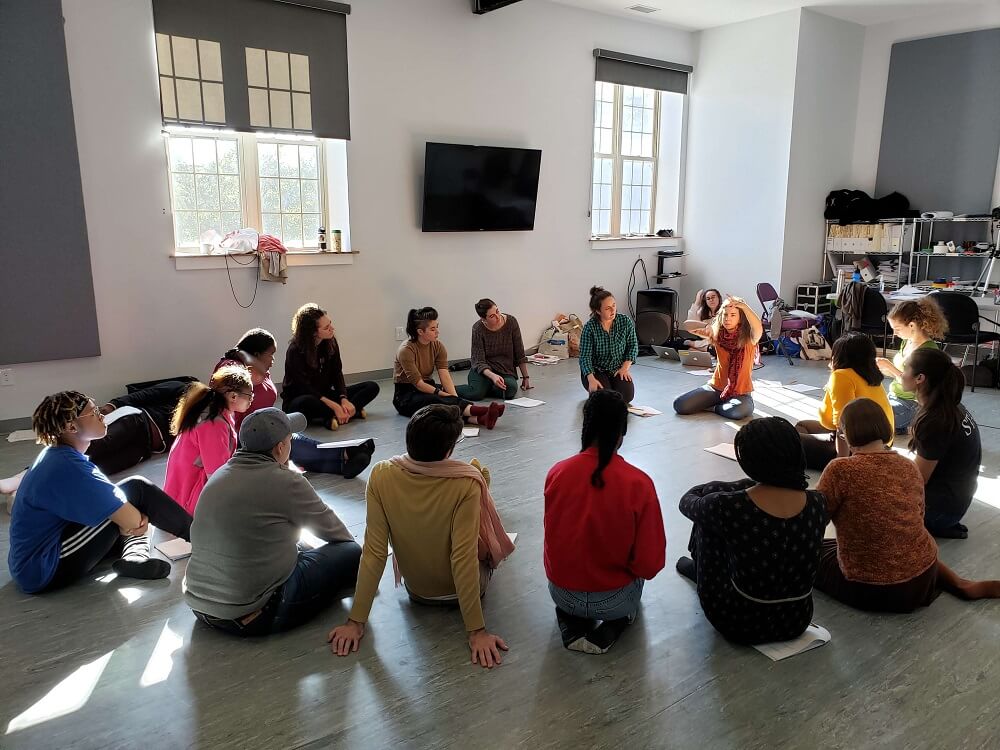
Anecdotes revealing the prison-factory model of school translate into rigid and methodical movement—walking a metaphorical assembly line of constant surveillance, with the humming of machinery that takes on a melodic, numbing quality. This scene grows out of one student’s story of being forced to throw out a plastic water bottle because it looked like glass. This same student was routinely stopped by school security and the dean, until it became apparent she was being targeted. Teachers and students share how the very sound of the bell and inaudible announcements start blending together, making them feel like they’re in a factory. These sounds are added to the show. Several students talk about lunch periods that are scheduled in the early morning due to overcrowded schools. This turns into a lunchroom scene where students share all the contradictions at school, while practicing the “move like a snake” challenge to pass time. Our collective hope becomes a song reflecting how we push back against struggles each and every day. The very act of participation in this play is helping us dismantle and rebuild how we learn.
In Weinraub’s words, “the process holds within it some of the ways forward. I remember Aaliyah saying, ‘I wish this were school.’ And really it is. It’s an intergenerational space that has problem and research at the center, in which people are collaborating and co-creating, coming up with answers, responding to real experiences … sharing. So couldn’t this actually be what school is? … working collectively on a project where we see the manifestations of our combined labors and ideas and talents and assets as opposed to all of our deficits.”
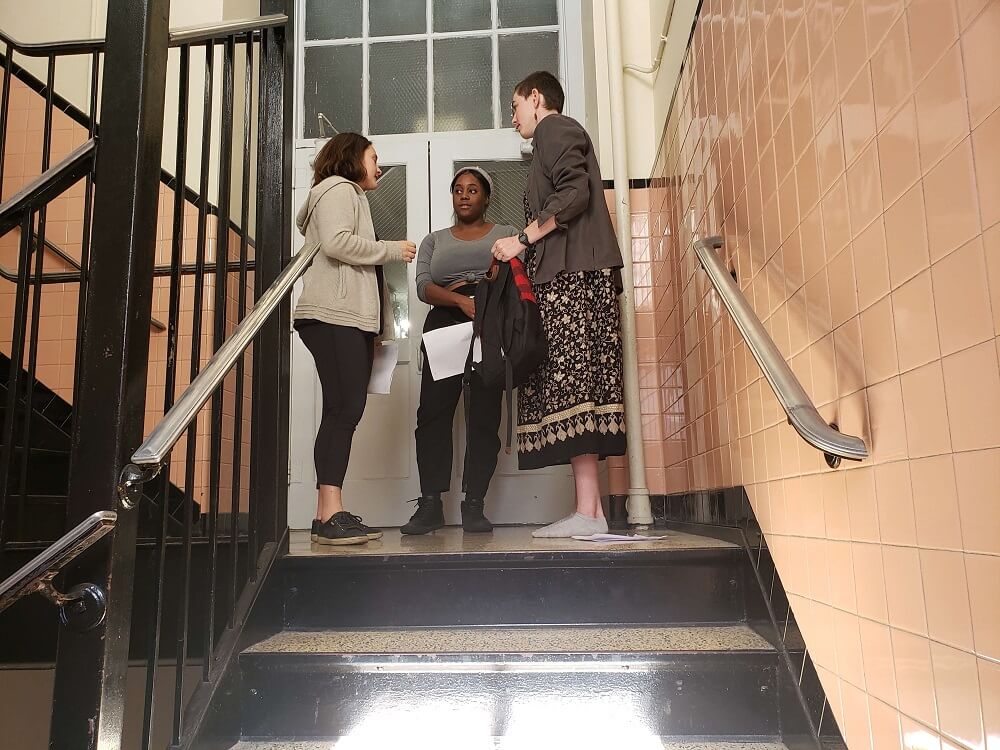
During our rehearsals, Weinraub isn’t just directing a play, she’s creating a temporary classroom where power is equally shared, and there is no distinction between student or teacher. We are all community members, and each of us is vital to the work. By creating such settings, she allows the walls to crumble and lets students and teachers see each other’s full humanity.
Weinraub routinely asks, in typical theater fashion, “what are the stakes?” She’s pushing us to create strong scenes and dialogue for the play. She’s also pushing us to reflect on what’s at stake if we don’t change this broken school system. Weinraub’s words (and the title of this article) sum it up: “the stakes of this play are the stakes of the world.”
Through Philly Education Stories, Weinraub asks the audiences this same question. “If we understand what’s at stake, why aren’t we changing…? What is cutting us off from fundamentally making the changes that need to be made so people can heal, so people can find joy together, so people can have the skills and strategies they need to solve the problems of the world they are inheriting? If we’re not doing that, what are we doing?”
Weinraub’s dream is to replicate her carefully crafted techniques with other communities in Philly and beyond. Her framework is theater-driven, community-centered, and intergenerational, working to dismantle power structures that get in the way of authentic storytelling. Being part of this experience has changed me as a teacher and collaborative artist. It’s put me back in touch with my love for process. It has reminded me to slow down, listen, and reach for the commonalities even in the face of broken systems that don’t quite know how to change. And I’m filled with joy and hope for a world where more people can access alternative educational frameworks.
Philly Education Stories premieres this weekend at Theater Exile. The project is supported through Simpatico Theater and the Leeway Foundation Art for Changegrant. Come find out what’s at stake and experience art that, in Weinraub’s words, “uplifts a campaign for change, and where politics and people who are organizing are transformed together.”*
*Anissa Weinraub, interview, Oct. 28, 2019. The title of this article is also taken from this interview.
Philly Education Stories, Anissa Weinraub, Theater Exile, November 10-11.
